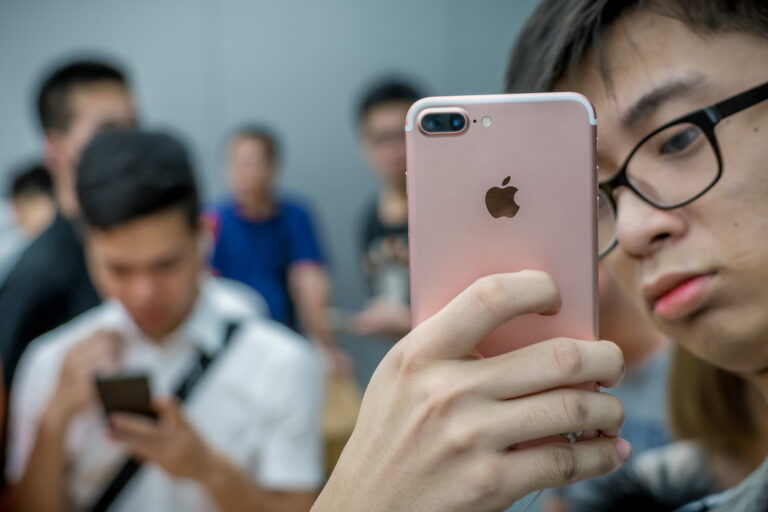Here’s an interesting shopping tip that I suspect most readers won’t be able to take advantage of: Right now, Apple is offering a discount on the iPhone in China. But I don’t talk about it because I actually hope to influence everyone’s purchasing behavior. I find it remarkable for other reasons.
It may seem strange that I find it interesting that a company is offering a discount on one of their products. Isn’t that something companies do all the time? Not in Apple’s case. They rarely – if ever – sell their devices at a discount. Take, for example, the “Black Friday” shopping experience in the United States, which typically kicks off the holiday shopping season leading up to Christmas. Many cell phone companies are offering huge discounts during this event. In fact, in recent years, these holiday discount prices have appeared well before Black Friday and lasted well past Thanksgiving weekend. Google and Samsung often offer their phones at significantly reduced prices, as well as bundle deals and improved trade-in values for older phones.
Last yearFor example, Google slashed $200 off the price of its high-end flagship phone, the Pixel 8 Pro, even though it had only been released the month before, and slashed $400 off the price of its hybrid phone /foldable tablet, the Pixel. Fold. Meanwhile, Apple only had promotions for Thanksgiving weekend, and rather than discounting their products, items were sold at full price, but some purchases would come with an Apple gift card that could be used to buy more Apple products. So, purchasing a new Apple TV 4K will also earn you a $50 gift card to Apple.
So why is Apple now offering its high-end iPhones at discounts equal to hundreds of dollars in China, but they are offering nothing like that in the US during the discount shopping event perfect for the holidays? This is because in China, Apple is focused towards strong and growing competition from companies like Huawei – competition that it does not have to face in the US market, because the US government has banned these companies from competing in the US market for obvious reasons. thin lines of “national security”. (Although not as thin as the case underlines by Jon Murphy, where protectionists cited “national security” as the reason for banning not Chinese electronics, but Chinese garlic.) As a result, Chinese consumers can get iPhones at better prices than American consumers, because the Chinese government allows more prices. competition in the mobile phone market than the US government allows. And it seems that this move on Apple’s part has been successful, as have Chinese consumers. replied positively to price reductions. It’s just a shame that American consumers don’t get the same benefits from this competition.
I wrote Before about how the Justice Department’s assertion that companies like HTC and Microsoft have failed to compete with Apple in the United States due to “barriers to entry” is absurd on its face. To recap, my contention was that it was absurd to say that Microsoft, which had been selling smartphones for years and had an established user base of millions and millions of customers long before the iPhone existed, would not failed to compete with the iPhone because Microsoft faced “hurdles”. at the entrance. » But this does not mean that there are no barriers to entry in the mobile telephony market. However, the biggest barriers that currently exist are due to government regulations. Before the government attempts to take grain off the market, it should first turn its attention to the plank created by its own policies.


